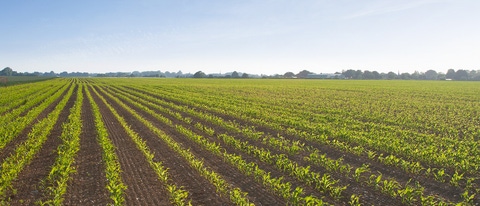Agriculture
Bentazon Active Herbicide: Post-Emergent Control of Broadleaf Weeds
Bentazon active herbicide provides exceptional versatility for a variety of growers. It can be used in row crops, ornamentals or turf. Bentazon offers reliable, cost-effective, post-emergent control of tough broadleaf weeds, including velvet leaf, yellow nutsedge, annual sedges and more. Available under the brand Basagran® herbicide, Bentazon works by inhibiting photosynthesis. With broad post-emergent activity, it allows growers flexibility in spray timing and is a great tank mix partner, further extending the spectrum of weeds controlled.
Key Features and Benefits of Bentazon

Features
- Broad spectrum post-emergent weed control
- More concentrated formulation
Benefits
- Flexible and effective broadleaf weed control in a variety of crops
- Easier to handle
Mode of Action
Bentazon is a contact herbicide that inhibits weeds and grasses by interfering with the photosynthetic pathway, essentially blocking photosynthesis. This causes the leaves to turn yellow, and eventually, the weed dies. Because bentazon is absorbed by the green parts of the plant, full coverage is essential for complete weed control and crop protection.
Bentazon at-a-glance
Key Growth Areas
Tough to control broadleaf weeds in soybeans (Eastern Europe) and rice (Asia).
Disclaimer
Always read and follow label use instructions. Availability of key active ingredients, products and mixtures vary by region. Regulatory requirements vary among countries and their regulatory authorities. Check with your local BASF representative regarding the use of products in your region.









